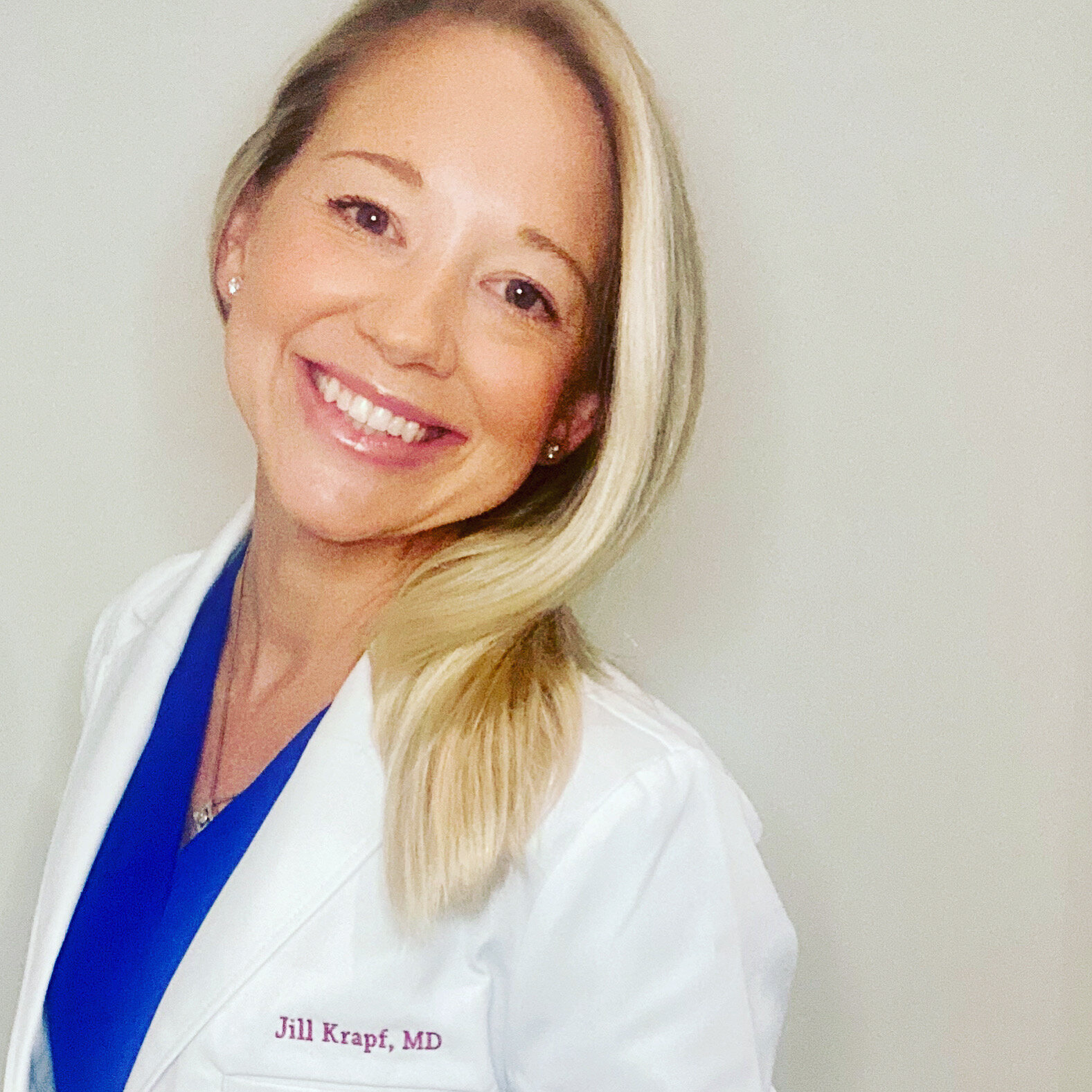Obstetrician Gynecologist: Dr. Jill Krapf
Dr. Jill Krapf (MD MEd FACOG IF) is a board-certified Obstetrician Gynecologist specializing in female sexual pain disorders at The Center for Vulvovaginal Disorders in Washington, D.C. She is a Clinical Associate Professor in the Department of Obstetrics and Gynecology at The George Washington University School of Medicine and Health Sciences. Dr. Krapf is active in research and has published chapters and peer-reviewed articles on vulvodynia, postpartum genitopelvic pain, and vulvar lichen sclerosus. She advocates for awareness and education on her Instagram page @jillkrapfmd. If you would like to schedule a consultation and become her patient, you can go to www.cvvd.org or www.vulvodynia.com.
Here she answers the Mama Sex Six:
What is the first thing that comes to mind when you hear the phrase "mama sex"?
Struggle. As an Obstetrician gynecologist, I have been taking care of pregnant women and new mothers for almost 15 years. I was well-trained in taking care of pregnant women and delivering babies. I was completely unprepared for the experience of being a new mom, or the changes that occur in the immediate postpartum period until I experienced them myself with my first pregnancy.
When it comes to sexual health, doctors are trained in infections, birth control, risk reduction, and disease. When it comes to the experience of women as sexual beings, including sexual concerns around sexual desire, arousal, satisfaction, and pain, most doctors do not feel adequately trained or that they have the time or experience to address many of these very common concerns. This is compounded further in the postpartum period, when the focus is often on the baby, and not the well-being of the mother. When it comes to sex for new mothers (or not so new mothers), it is often assumed that sexuality is not a priority, or that one should be able to easily transition back into their previous sexual experience.
This is often not the case. Sexual health is more than just resuming intercourse. It is how people feel about themselves as sexual beings. I have seen many patients and friends alike struggle with this in the postpartum. They struggle with the expectations that society place on them as new mothers. They struggle to find help when their bodies are not responding the way they did before. They struggle when there is an issue with libido or pain. They do not know what is “normal” or that help is available.
What inspired you to work/create/advocate on the topic of "mama sex"?
I am a board-certified Obstetrician Gynecologist who specializes in women’s sexual medicine and vulvar pain conditions. I have dedicated my professional life to the medical care of women during their reproductive years and in menopause. I decided to become an OB/GYN because I enjoy taking care of women of all ages through major reproductive life events.
My transition to specializing in sexual pain and vulvar conditions was 8 years in the making. I was first introduced to this sub-specialty during my final year of residency training. I saw female sexual dysfunction as an area that not many clinicians knew about or felt comfortable treating, but patients needed this expertise and care. I immediately knew that I would be doing my future patients a disservice if I did not have training in sexual health. When I sought out this additional training, I found that helping women in this way was truly my calling. I started a center for sexual health at a major medical center and trained other providers in diagnosis and treatment of female sexual dysfunction. I then decided to dedicate my full practice to sexual medicine and vulvar pain conditions, joining my mentor Dr. Andrew Goldstein at the Centers for Vulvovaginal Disorders. Now, I am able to help patients with these concerns in an innovative way, while also advancing our knowledge in this important area of medicine through clinical research.
In your work/practice/art, what are the biggest hurdles mothers are facing in terms of their sexuality?
The biggest hurdle is lack of education and awareness around sexual health after having babies. We just don’t talk about both the normal and expected, or when things need additional evaluation.
What do you think society at large should know about motherhood and sexuality? And what is society getting wrong right now in regards to it?
Sexuality is generally regarded as something essential, but also something optional, especially in motherhood. This provides mixed messages to new mothers.
What piece of sex advice would you give mothers? Was there something you wish someone had told you?
As a specialist in vulvar pain conditions, my advice is that if someone is experiencing sexual pain, there are causes and treatment options, as well as clinicians who specialize in this type of medicine. Sometimes there is a quick fix, such as adding a personal lubricant, and other times treatments are more involved, encompassing pelvic floor physical therapy, hormonal contributors, skin conditions, nerve irritation and/or psychological factors. Either way, there are causes of sexual pain and treatments available and it should not be accepted as a new normal of motherhood.
Let's amplify our voice: Who are some mamas you love following on social media?
@babiesafter35
@dr.martaperez
@drjenniferlincoln
@mypelvicfloormuscles
@healathomemoms
@bumppelvichealth
@psychedmommy
@womensmentalhealthdoc
